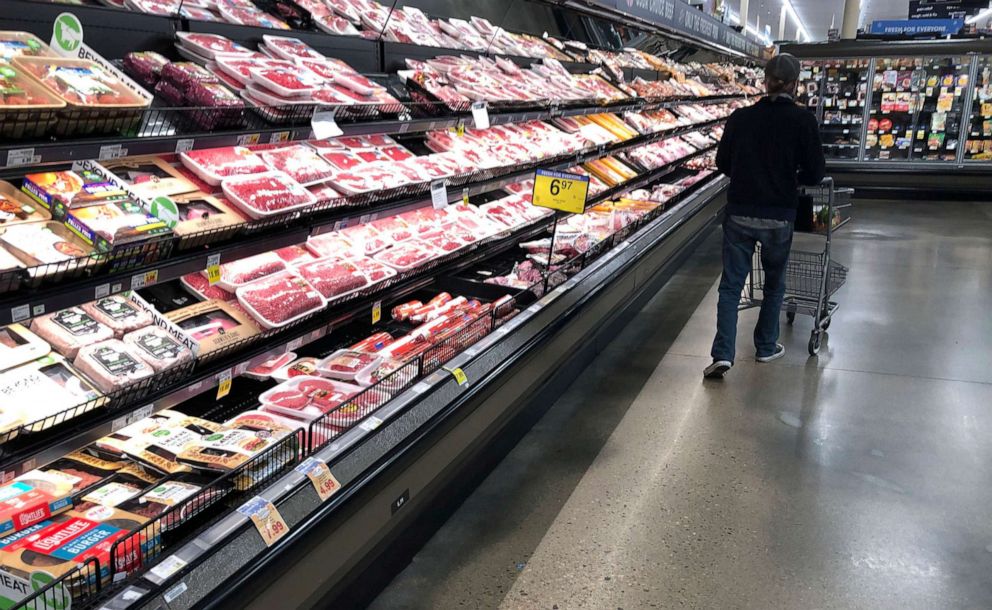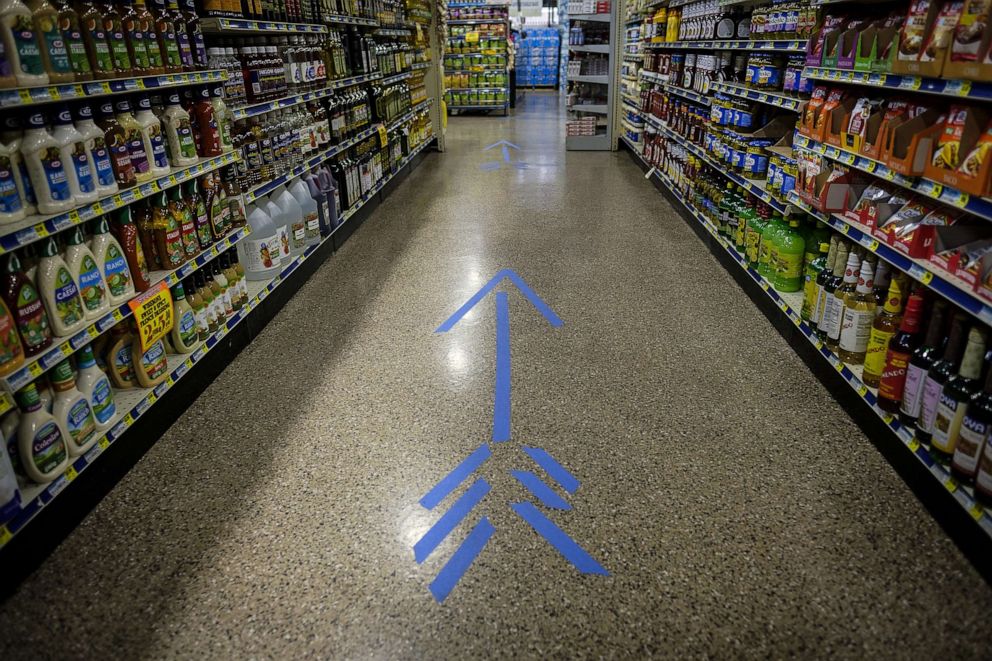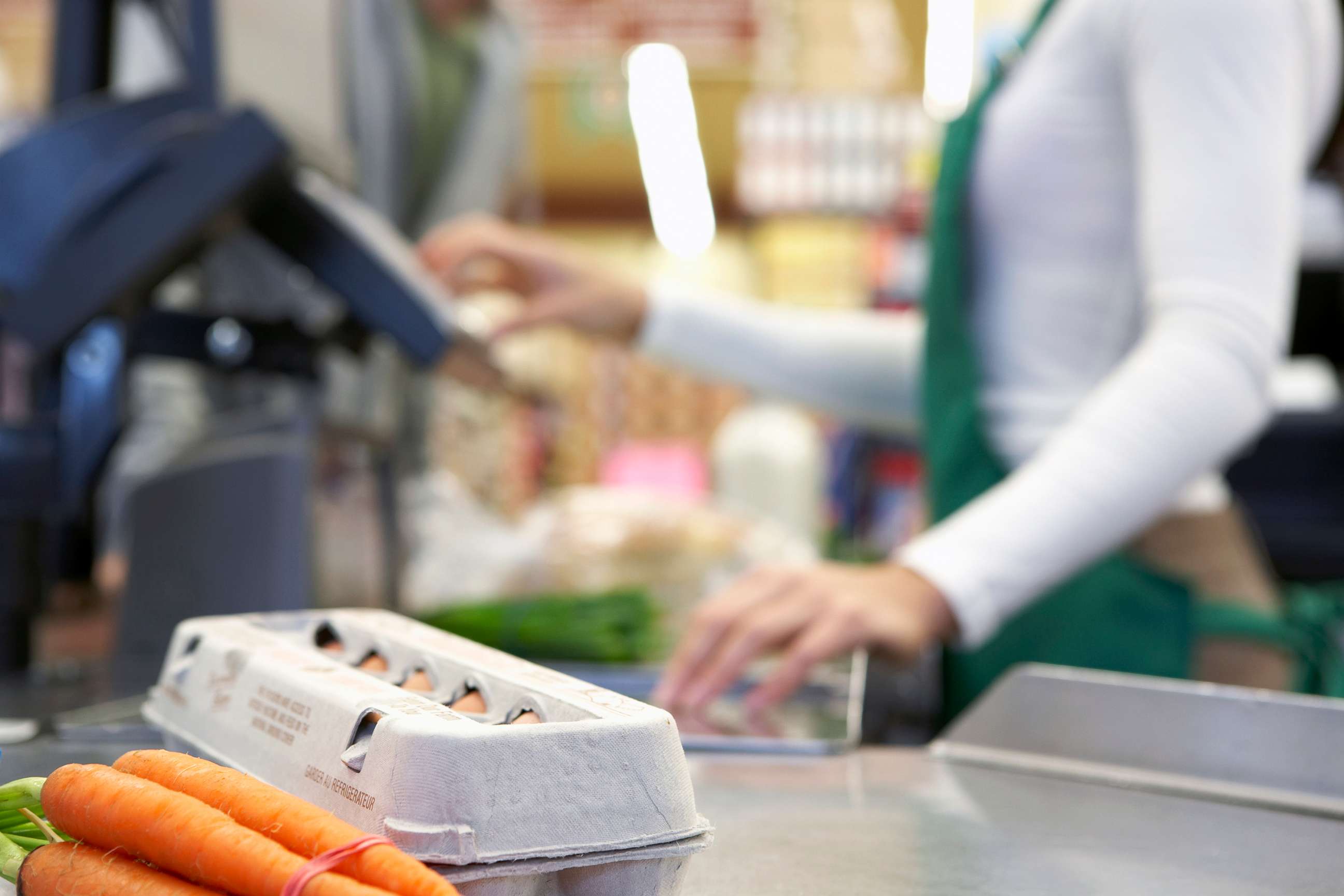What's behind the spike in grocery prices
The index on eggs jumped 16.1% in April.
Grocery prices have hit a 46-year record high amid the ongoing coronavirus pandemic.
As more Americans continue to buy food from the supermarket while staying at home to help slow the spread of the deadly virus, the prices of eggs, milk, meat and cereal spiked, creating the biggest one-month jump since February 1974, according to the latest Consumer Price Index Summary from the U.S. Bureau of Labor Statistics.

Grocery prices increased 2.6% in April for an array of product categories -- like fresh vegetables and canned tuna.
"It's a very unusual time in the in the food market right now," Stew Leonard Jr., CEO of his namesake grocery store, told ABC News.
Staple items like meat, poultry and eggs saw the steepest increase at 4.3% with the egg index alone up 16.1%. Fruits and vegetables climbed 1.5%.
Patrick Penfield, a professor of supply chain management at Syracuse University, told ABC News that demand for food at home has been a driving catalyst for the spike.
"People are staying home, they're not going out anymore. And so there is a big increase in regards to sales in grocery stores," he said. "Grocery stores are seeing on average over 25% sales increases."

The Food Industry Association told ABC News that the sudden "cost increase is not related to increased profits, and instead due to a spike in costs due to labor, lower capacity production, cleaning and sanitation protocols and even transportation demands."
"This re-engineering of the workplace is creating a shortage of meat here to the consumer," Leonard added.
The high demand will also mean fewer deals at the grocery store.
"Less supply, more demand and prices are going to go up -- a lot of these grocery stores are not offering things on sale," Penfield said, adding that special deals may not return anytime soon. "Consumers can expect price increases and so you'll see anywhere from 2% to 4% probably for the remainder of the year."

In order to save more money, experts are recommending that shoppers stock up at local farms to minimize cost.
"You're really going to have to do your due diligence as a shopper because you're not going to see many promotions in these stores anymore," Penfield said.
Top Tips to Save on Groceries
-- Buy in bulk if and when you can.
-- Plan meals ahead of time with ingredients that fit your budget.
-- Avoid prepared foods.
-- Use up what you already have at home.
Should you wear gloves while you grocery shop?




